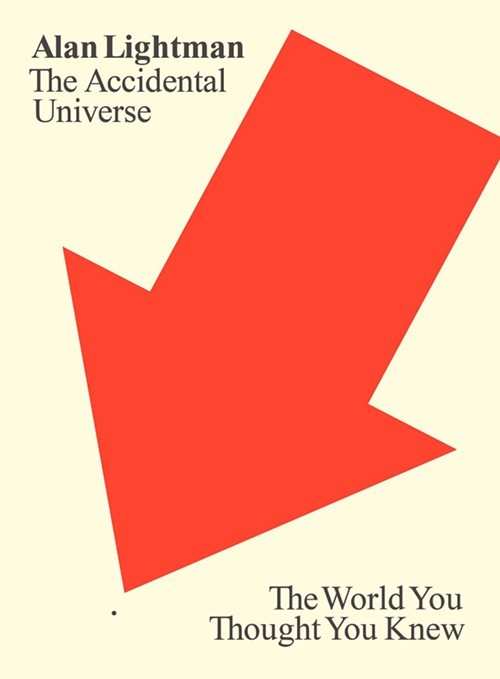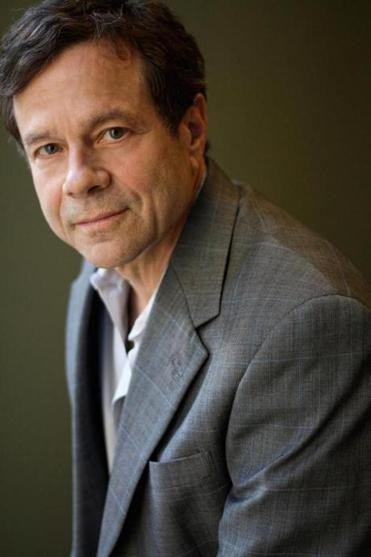Frank Murtaugh has the details of the Tigers’ “course correction” against Rutgers, Tuesday night.
Month: February 2014
The Being of Lightman
Leonard Gill profiles Memphis-bred author and philosopher Alan Lightman, who has two appearances in town this week.
You’ve heard of astronomical figures. Consider UDFj-39546284. That’s the name of a galaxy 100,000,000,000,000,000,000,000 miles from Earth. Light from it takes billions of years to reach us, which makes that galaxy one of the oldest in the observable universe.
And what happened exactly when our universe first formed? Maybe, according one theory, the cosmos rapidly expanded a trillionth of a trillionth of a trillionth of a second after t = 0, after which time it returned to a slower rate of expansion.
But what happened when Alan Lightman watched as two ospreys left the nest and made their maiden flight? Lightman saw them circle his house, then veer straight toward him and make, for a split second, eye contact with him before resuming their flight.
[jump]

“Words cannot convey what was exchanged between us in that instant,” Lightman writes in an essay called “The Spiritual Universe,” one of seven essays collected in The Accidental Universe (Pantheon Books). “It was a look of connectedness, of mutual respect, of recognition that we shared the same land. After they were gone, I found that I was shaking, and in tears. To this day, I do not understand what happened in that half second. But it was one of the most profound moments of my life.”
It wasn’t the stuff of science, like that distant galaxy or that moment after t=0. But it was, Lightman believes, a moment of truth, a transcendent split second outside the bounds of science. Mysterious? So be it. But such belief doesn’t make Lightman — a theoretical physicist who grew up in Memphis and who’s taught science and writing for years at MIT — any less scientific and any more religious, if by religious we mean belief in a God that intervenes in the workings of the physical universe. Call Lightman an atheist and humanist. He himself does.
Philosopher Daniel Dennett has called him an apologist for religion. And as Lightman recently explained before his appearance in Memphis at Rhodes College on February 6th and at Burke’s Book Store the following night:
“Part one of my essay ‘The Spiritual Universe’ was published on Salon, and part two ran in The Commercial Appeal. There was a tremendous amount of feedback on Salon, and I was taken to task by Dennett, a ‘neo-atheist’ who said I was an apologist for religion. He and others were upset by my essay.”
Which is all right by Lightman, who welcomes conversation on — and the controversy that continues to surround — these twin ways of knowing: the objective and subjective.
“What’s happened in the last five years to add fire to the conversation is a new group of scientists — Richard Dawkins being the most prominent, Larry Krauss is another — who have used recent discoveries of science to attempt to disprove the existence of God.
“It’s just new tools in the hands of atheists, and these atheists just happen to be scientists using new discoveries in cosmology. I think all of that is terribly misguided. Science will never disprove the existence of God, and religion will never prove the existence of God.

“If you believe in God — I’m defining God as a being that lives outside of time and space and is not subject to the laws of nature — and if you believe in a God that does not intervene in the physical universe once it has been created, then that is completely compatible with science. What is not compatible with science is belief in a God that intervenes in the physical universe and performs miracles.
“What I’m going to argue for at Rhodes is the existence of a spiritual universe in addition to the physical universe. A spiritual universe doesn’t necessarily involve God, it may or may not, but it incorporates certain transcendent experiences we’ve all had where we feel connected to something larger than ourselves.”
The essays in The Accidental Universe make all kinds of connections and across the spectrum — from the provable to the speculative. They illustrate what science is and is not. They examine forms and degrees of knowing, be it scientific or not. And if it’s not, Lightman maintains, doesn’t mean it’s necessarily any less a truth.
The essay form suits Lightman just fine. The Accidental Universe: a return to form.
“I’d been out of the essay business,” Lightman said. “I’d written a lot of them in the 1980s and ’90s. But I wrote a couple more recently — one for Harper’s, ‘The Accidental Universe,’ and one for Salon, under the title ‘Does God Exist?.’ Both got a very good reception. It occurred to me to write a series of essays, all with the word ‘universe’ in the title.
“I love the essay as a form,” Lightman added. “It’s flexible. You can be informative, poetic, personal, or philosophical. In fact, a good essay is, I think, all those things.”
But the essay, as most of us know, isn’t Lightman’s only strong suit. His debut novel, Einstein’s Dreams, was an international best-seller, and The Diagnosis was a finalist for the National Book Award. On tap for next year is another novel, this time, in Lightman’s words, a fictionalized memoir drawing on his upbringing in Memphis in the 1950s and ’60s, with its racism, music, food, and his family’s business — the Malco movie-theater business. It’s called Screening Room.
“It was easy to do the research and talk to people,” Lightman said of the forthcoming novel. “The more difficult part was writing about family members, especially my father. I had a draft finished a few years ago, but I decided not to publish the book while my father was alive. He passed away about a year ago, so I’ve waited. If you write honestly, there will be good things and not so good things. Everybody who writes a memoir has this difficulty.”
No difficulty, though, learning where one famous physicist stood on the subject of science and religion. His letter to a sixth-grader back in 1936 was featured on the Huffington Post just last week. The question put to “My dear Dr. Einstein”: Do scientists pray? •
Tigers 101, Rutgers 69
As the Tigers cling to membership in the country’s Top 25, they’ve come to establish themselves as masters of the bounceback win. Tonight at FedExForum — and for the fifth time this season — the U of M erased the memory of a loss in its previous outing with a victory. And for the fourth time, the bounceback was decisive.
The sparse crowd had barely tucked away its umbrellas before the Tigers knocked the Scarlet Knights off their proverbial horse. Behind nine early points from freshman forward Austin Nichols, the Tigers took a 22-3 lead eight-and-a-half minutes into the game. Back-to-back three-pointers by senior Chris Crawford four minutes later extended the lead to 37-9. Rutgers would not close within 20 points the remainder of the contest.

- Larry Kuzniewski
- Austin Nichols
“We didn’t want the loss at SMU to really affect us,” said Nichols, who finished with 18 points (on 8-of-9 shooting) in 27 minutes. “We trust the process. We played more inside-out basketball. If we continue to do that, I think we’ll be a successful team.”
As for his performance, Nichols felt there was a right-place-right-time component to his highest scoring output since November. “It helps knowing my teammates have confidence in me,” he said. “I felt like I was in the right positions at the right time. I kept running the floor. Teammates were giving me the ball in position to score.”
Nichols was but one of six Tigers with at least a dozen points, Joe Jackson adding 16, Michael Dixon 15, Shaq Goodwin 13, and Chris Crawford and Geron Johnson with 12 each. After hitting only six of 24 three-point attempts last Saturday at SMU, Memphis drilled 12 of 19 tonight, Crawford leading the way with four. The pride of Sheffield High School has now hit 14 treys in the Tigers’ last four games. He also pulled down 11 rebounds and had five assists. As a team, the Tigers dished out 26 assists, the eighth time this season they’ve reached 20 dimes.
“We played with a sense of urgency,” said Dixon. “The seniors, we’ve got 10 more games [in the regular season]. We’ve got to play like we’re in a fox hole.
Memphis, now 17-5 (7-3 in the American) held Rutgers to 41 percent from the field. Kadeem Jack paced the visitors with 12 points.
Next for the 24th-ranked Tigers will be a nonconference tilt with Gonzaga, the Bulldogs visiting Saturday night for a game that will be featured on ESPN’s “GameDay.” (This will be the third time FedExForum has hosted the broadcast crew. Memphis lost to Louisville in 2005 and fell to Tennessee in 2008.)
“It’s gonna be fun,” said Dixon with a grin. “I’m fortunate. I got to play in a ‘GameDay’ game [with Missouri] against Kansas. I know what it’s like with all the fans, all the excitement.”

In case you haven’t heard already the Memphis Symphony Orchestra is running out of money. The endowment has dried up and the sky is falling. Or maybe the sky is merely restructuring, depending on the account you believe. In either case, unless someone can convince me otherwise, the word “dire” seems appropriate.
A recent gift of $100,000 will prop up the MSO in the short term but the 2013-14 shortfall is closer to $400,000, and barring a much larger cash infusion hard decisions will have to be made sooner rather that later. While not desirable obviously, worst case outcomes can’t be completely dismissed. This shouldn’t be surprising news given the challenges orchestras playing all the hits of the 18th and 19th-Centuries face in 21st-Century America, but it’s especially disconcerting given the MSO’s high level of artistic achievement, innovation and audience engagement.
The local news has broken on the heels of a critical dustup and Internet skirmish between Slate’s Mark Vanhoenacker who recently wrote that things were looking bad for classical music and the New Yorker’s William Robin who passionately disputed Vanhoenacker’s muddled but still compelling math.
Both of the above-mentioned accounts are a little obnoxious. One uses truly ugly numbers that never quite add up to its hackneyed conclusions about fat ladies and song. The other, leaning too much on this grumpy blog post for support, is nothing more than extremely serious cheerleading. Taken together, however, these pieces do point us in the direction of a dialogue we need to have, employing more civil and less sensational terms.
What’s especially disquieting is that in Memphis classical music has been winning. Although the “Memphis model” has been widely misunderstood, the MSO has been having this conversation with itself for a long time. Right here in River City the MSO’s artistic and administrative leadership joined forces in unprecedented ways, with the full understanding that the fate of modern orchestras has less to do with the quality or importance of classical music, than the bond of reciprocity created between the orchestra and the community it serves.
By building unique community partnerships the MSO attracted unlikely donors and unusual grants. With some new cash streams, innovative community engagement projects like Leading from Every Chair, and Opus One it looked like Memphis was well on its way to finding a sustainable way forward.
“The Memphis Symphony has not yet achieved long-term financial stability,” Ryan Fleur, the former MSO CEO said in a Feburary, 2011 interview with polyphonic.org, an online forum for orchestra musicians.
“By doing all these things we’re still in business and we have a path to success,” Fleur added. “We’ve captured the imagination and attention of a much wider circle of Memphians who will ultimately help us change our own business model. Now we’re in lag time — in the business world it takes 5 years before you find the full revenue return on an investment.”
Although the country was mired in economic crisis and the MSO had been forced to slash its budget the ink was black and there were reasons for Fleur to be optimistic. For the fiscal year starting July 1, 2010 and ending June 30, 2011 the orchestra took in $4,722,614 with expenses reported at $4,610,653.
Three years after Fleur made the case for his five-year plan much has changed, at least on the surface. He’s an Executive Vice President with the Philadelphia Orchestra. Former COO Lisa Dixon is Executive director of the Portland Symphony, innovative concert master Susannah Perry Gilmore has joined the Omaha Symphony, and Memphis is in crisis.
In an admittedly dated promotional video MSO board member Dan Poag broke down some numbers that are worth chewing on still, especially in light of the stats collected in the much- vilified Slate article . The average ticket price, he explained, covered only 30% of what it actually costs to produce MSO concerts. The other 70% — a subsidy for MSO ticket holders — comes in the form of sponsorships, gifts, and grants.
Inside the MSO
Roland Valliere, the new no-nonsense CEO of the Memphis Symphony Orchestra has a reputation for salvaging seemingly doomed orchestras. With austerity measures and outsourcing he was able to prop up the Columbus Symphony Orchestra in Columbus, Ohio. The message he is currently sending Memphians is clear: When this season ends, things are changing.
Not so very long ago the MSO seemed to have momentum. It was trying new things, reaching new audiences by way of Opus One, and cultivating a reputation for dynamic live performances under Mei Ann Chen’s baton. Although the path forward was always uncertain, the organization was clearly energized, engaged, and positioned to develop new revenue streams while attracting new donors. So what happened to all of that potential? Or what didn’t happen?
Among other near-term changes an Opus One concert scheduled for March has been cancelled. The concert would have paired the MSO with the best of Memphis’ singer-songwriters. I bring this up because it’s sad, obviously, but also because there’s one more question worth asking, and nobody has ever asked it better than Memphis rapper Al Kapone, on the electric night when he shared the stage with Opus One: “What about the music?”
Well, what about it?
Sound Advice: Wednesday
Drew Davis at Java Cabana.
Drew Davis plays a fuzzy Wurlitzer just right. She can sing like nobody’s bizwax too.
Sound Advice: Wednesday
Sound Advice: Wednesday (2)
Lorin Walker Madsen and the Hustlers @ Kudzu’s
Madsen does country the good way.
Sound Advice: Wednesday (3)
Granger Smith and Earl Dibbles Jr. @ Minglewood Hall
Finally Granger Smith brings his Earl Dibble Jr. alter ego. I like Earl. He’s a’ight.
Sound Advice: Wednesday (5)
Sound Advice: Wednesday (4)

New Orleans-born/Memphis-bred emcee PreauXX illuminates lyrically on his project Die Winning.
Over the course of 12 tracks, PreauXX gives listeners exclusive access into his eccentric and optimistic lifestyle. On songs like “Vibe,” “Metropolis” and “Daze Remix” (which also features Memphis artist Skewby), he showcases his ability to deliver clever wordplay and catchy choruses over crisp production.
On the track “SOB,” he sheds light on police brutality while “Whatevers” allows him to express the hardship of balancing a rap career with personal/family relationships. He also pays tribute to the late Pimp C on the chorus of his trunk-rattling song “E.W.B.,” which features Russ P and Jo’zzy.
Those are just a few joints on the project that are worth checking out, but Die Winning is a solid effort overall. Stream and download the mixtape below. Also, check out the visual to “VIBE” off the project.
Follow me on Twitter: @Lou4President
Friend me on Facebook: Louis Goggans
Check out my website: ahumblesoul.com
Memphis Symphony Orchestra: Crisis Opus
Chris Davis looks into the financial challenges facing the Memphis Symphony Orchestra.

Last night I dropped by Superman Ranch studio, where several new developments were going down at once: James Godwin was recording his first full-length album with his band James and the Ultrasounds. Also breaking new ground was the album’s producer, Mark Edgar Stuart, who is adding producer to his ponderous musical résumé.
These sessions — engineered by Curry Weber — represent a major move forward for Godwin, whose first recordings were done at home.
“It was just an EP,” Godwin said. “I recorded that on my four-track. For that one, I didn’t have a band yet. So I recorded it all by myself. We finally got everybody together and learned those songs. So these are songs that were written after we’d been playing a bunch. Most of what would be on the new record are songs that we’ve played live a handful of times, just to work them out. It’s been just over a year.”
Godwin has wracked up some serious Memphis credentials as a sideman for Jack Oblivian and for John Paul Keith. His work with the New Mary Jane garnered love and attention, if not traction. He formed the Ultrasounds with guitarist Luke White, bassist David Johnson, and drummer John Argroves. Flyer writer J.D. Reager picked the band as a likely highlight of 2014. Judging from the tracks I heard, he’s right.
Stuart threw down a major gauntlet in securing an original Hofner bass. The sound is unmistakably McCartney, and is only one variable in a lively, original-sounding piece of music. Argroves is rock solid, and his kit is rendered beautifully. Above the bass and drums are blended guitars that assume their own form: a wall of harmonies that lift Godwin’s all-in vocal performance. I look forward to hearing this record.
As for Stuart, he’s enjoying his environment at Superman Ranch and the new role.
“When Jeff from Star & Micey broke his hand and I did some gigs with them playing bass, they gave me all of their demos,” Stuart said. “I said damn this sounds good. Where’d you record it? They said, ‘Our practice space. Curry did it.’ That’s how I got hip to it. I thought it would be good for James.”
Godwin has enjoyed the transition from working at home to the relaxed feel at Superman Ranch.
“It’s the perfect level of intimidation,” Godwin said.
Look out for this record.
Kool & the Gang: Because Why Not?